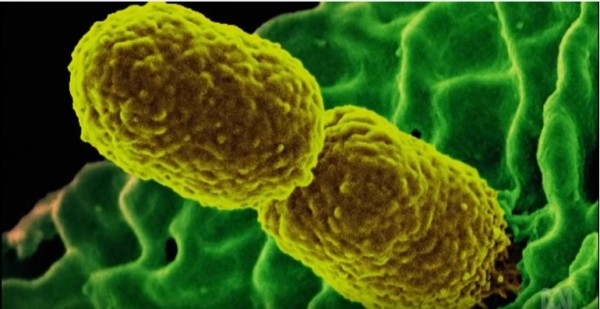By Prei Dy, | February 09, 2017

Researchers discovered that both colistin- and carbapenem-resistant genes are found in dog feces and flies at chicken farms. (YouTube)
A new study has found that flies are spreading a certain type of gene that gives bacteria resistance to our strongest antibiotics. This disturbing trend was found on Chinese farms.
Currently, colistin is considered the "last resort" drug after increased resistance to carbapenems alarmed health professionals. Unfortunately, last year, a mobilized colistin resistance (MCR-1) gene was found in China, sparking fears that this could be "the end of the road" for antibiotics, a US official said.
Like Us on Facebook
Since then, the gene has been found in 25 countries including the United States, Germany, Spain, and Vietnam, Gizmodo reported. The study indicated that the MCR-1 gene is potentially spreading faster than we realized.
Researchers discovered that both colistin- and carbapenem-resistant genes are found in dog feces and flies at chicken farms. Colistin is widely used a growth enhancer on farm animals. Its clinical use was discovered in 1959, but it was not commonly prescribed because of its side effects which include kidney damage.
The E. coli bacteria carrying the MCR-1 gene was found on patients in Chinese hospital, according to a report published by The Lancet. Researchers found that incidence of resistant strains was about one percent. "The emergence of MCR-1 heralds the breach of the last group of antibiotics," Professor Tim Walsh from Cardiff University said.
Moreover, a separate paper in Nature Microbiology, published by the same team, found increased rates of bacteria with colistin-resistance genes in flies at Chinese poultry farms. "Flies and migratory birds are probably important modes of transmission. Drug-resistant genes can be transmitted through the environment, through the animal food chain, and to humans," Jianzhong Shen of the China Agriculture University and one of the authors said.
China responded to the reports by banning the use of the drug last year. However, it still allowed to be used to treat sick animals and human patients. Yu Yunsong of Zhejiang University claimed that efforts to decrease the antibiotic's over-prescription in Chinese hospitals are starting to see some positive results.
-
Use of Coronavirus Pandemic Drones Raises Privacy Concerns: Drones Spread Fear, Local Officials Say

-
Coronavirus Hampers The Delivery Of Lockheed Martin F-35 Stealth Fighters For 2020

-
Instagram Speeds Up Plans to Add Account Memorialization Feature Due to COVID-19 Deaths

-
NASA: Perseverance Plans to Bring 'Mars Rock' to Earth in 2031

-
600 Dead And 3,000 In The Hospital as Iranians Believed Drinking High-Concentrations of Alcohol Can Cure The Coronavirus

-
600 Dead And 3,000 In The Hospital as Iranians Believed Drinking High-Concentrations of Alcohol Can Cure The Coronavirus

-
COVID-19: Doctors, Nurses Use Virtual Reality to Learn New Skills in Treating Coronavirus Patients









